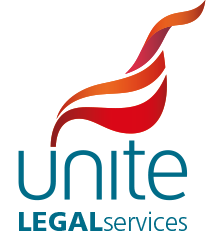Trade Union FAQs
Trade unions have existed in the UK for more than 150 years and are a legitimate and important form of employee representation.
Current UK government attacks on workers’ rights has meant that it has never been a better time to join a union.
Here is a guide to becoming a trade union member, the benefits for both you and your family as a member, and answers to frequently asked questions about rights at work.
What is a trade union?
A trade union is a membership-based organisation consisting primarily of workers. One of their main priorities is to protect and advance the interests of their members.
Most trade unions are independent of their employers. However, trade unions strive to develop close working relationships with employers. In some cases, employers and unions will enter into a partnership agreement that identifies their common interests and objectives.
Trade unions will:
- negotiate pay, terms and conditions with employers
- provide members with legal and financial advice
- discuss major workplace changes such as large-scale redundancy
- talk through members' concerns with employers
- attend disciplinary and grievance meetings involving members
What are the benefits of joining a trade union?
Trade union members benefit from the following:
- More likely to have better pay and conditions than others in similar work who are not union members.
- Workplace safety is improved when your union is involved at all levels.
- Push employers to make workplaces more inclusive for women, black and minority ethnic workers, LGBTQ+ workers and disabled workers and fairer for both young and older workers.
- Access to free legal advice and representation for employment law and personal injury claims from specialist lawyers.
- Perhaps most importantly, trade unions help to redress the often unequal bargaining position between you and your employer. It gives you a voice that your employer is more likely to listen to because you aren’t on your own, and instead are part of a larger united group with the same aims.
What is a union recognition?
Union recognition is when an employer agrees to negotiate with a trade union over workers’ pay, terms and conditions. In some cases, unions and employers make further agreements that cover pensions, training, and other workplace issues.
What is collective bargaining?
Employers can negotiate terms and conditions with unions if they are formally recognised by them. This is known as 'collective bargaining'.
Collective bargaining agreements must be agreed upon by unions and employers. For example, agreements might specify how union subscriptions will be deducted from workers' wages, who will represent them in negotiations and how often meetings will take place.
Both these agreements on procedure and between employers and unions changing the terms applying to workers, such as a pay increase, are called 'collective agreements'.
Your employment contract should specify which collective agreements you are covered by.
Can I join a trade union?
Yes. You have the right to:
- join a union of your choosing, even if it’s not the one your employer normally negotiates with
- belong to more than one union
Your employer isn’t allowed to:
- influence your decision to join or leave a union with threats or bribes
- dismiss you or select you for redundancy because of your trade union membership
- treat you unfavourably because you are a union member or are involved in union activities
How do I join a trade union?
It’s as easy as signing up to become a member of the union(s) of your choice, either online, or through a paper form you can request from a workplace rep.
Unite is UK and Ireland’s leading union fighting to protect and advance jobs, pay and conditions of members. Its membership spans the private, public and voluntary sectors including manufacturing, public services, transport, construction food and finance.
Whether you are retired or not in work, there is a place for you in our community.
Apply to join Unite here.
How much does it cost to join?
Unite’s membership fees range between £2.38 and £16.25 per month depending on your situation. You can pay by direct debit or directly through your pay. And if you want to cancel your membership, you can do so at any time. You can view a breakdown of our membership fees here: https://www.unitetheunion.org/members/membership-calculator/
Can I join a union when I have a problem?
It’s never too late to join but the amount of help we can offer will depend on your issue and what stage it has reached.
In line with many other unions, Unite benefits and services are only available to current paying members, and we have a pre-existing issue policy which means that we can only provide assistance when issues have arisen after the date of joining.
When you join, you will be able to access our help and support for any work-related issues you may encounter in the future.
Will a union help non-members?
In order to benefit from the many services available you would need to join and become a union member.
Can I join a union during a disciplinary?
You have the legal right to join a trade union at any time. However, a union rep can only provide assistance when issues have come to light after the date of joining.
How long after joining Unite can I get help?
Legal services for personal injury claims are available immediately upon joining the union; eligibility for a free will is 13 weeks full paying membership; for all other legal services, four weeks' full membership is required.
Unite members are entitled to legal assistance in accordance with Rule 4.6 of the union’s current Rule Book.
Can your employer dismiss you for joining a trade union?
No. Joining a union is a legal right, and you do not need to tell your employer that you have joined one. You are entitled to be accompanied by a trade union representative during disciplinary or grievance proceedings.
Nobody at my workplace is part of a union, can I still join?
Certainly. Being an individual member of Unite offers many benefits, including getting access to advice and representation should you require it.
Once you've joined and discovered the variety of benefits of being a Unite member, you might want to let your colleagues know. And it's worth mentioning that unionised workers earn 14.8% more on average than their non-unionised colleagues.
Do I have to disclose my union membership to my employer?
Employers are not entitled to know whether you are a union member. It is certainly not appropriate to ask about your trade union membership, views, or activities and if you’re a member of a political party during an interview.
Can I join if my workplace doesn’t recognise the union?
Yes. You have the right to join even if your employer does not recognise our union or any union for that matter.
If your workplace does not recognise your trade union, they can firstly seek voluntary union recognition from your employer. An application must be submitted by the union, identifying both the union and its bargaining unit (the group of workers the union represents). Furthermore, the employer must employ at least 21 people.
If the employer rejects the union's request or cannot reach an agreement with the union, the union can seek recognition from the Central Arbitration Committee (CAC) – commonly known as statutory recognition.
What are my trade union-related rights?
It’s your legal right to join a union wherever you work. This right applies whether a trade union has been recognised or not. There are certain protections afforded to union members. For example, trade union membership is an unlawful reason for:
- refusing you employment
- dismissing you
- selecting you for redundancy
Find out more about your trade union employment rights here.
Do I have to attend any trade union activities after joining?
No. There is no requirement to attend any trade union activities upon joining.
Examples of activities include:
- attending workplace meetings
- Meetings/consulting with union officials to discuss workplace issues
- Voting in union ballots - including strike ballots
- Voting in union elections
- Being a delegate to the union's annual conference
Do I get paid time off for attending trade union activities?
Employees who belong to a trade union recognised by their employer have the right to take a reasonable amount of paid and unpaid time off for union duties.
There's no legal definition of 'reasonable time off', but both you and your employer would need to take into account the following factors:
- type of employer
- importance of keeping production going
- importance of health and safety in the workplace
- amount of time off you've had to date
Can a manager refuse time off for trade union activities?
There is no absolute right to take time off work for trade union activities, but an employer should not refuse a reasonable request to do so. If an employer refuses a reasonable request, the employee may complain to an employment tribunal.
However, an employee can’t simply take time off without the employer’s permission. The right is initiated by the employee’s request. In addition to these statutory provisions, the ACAS code of practice on time off provides employers and unions with practical guidance.








